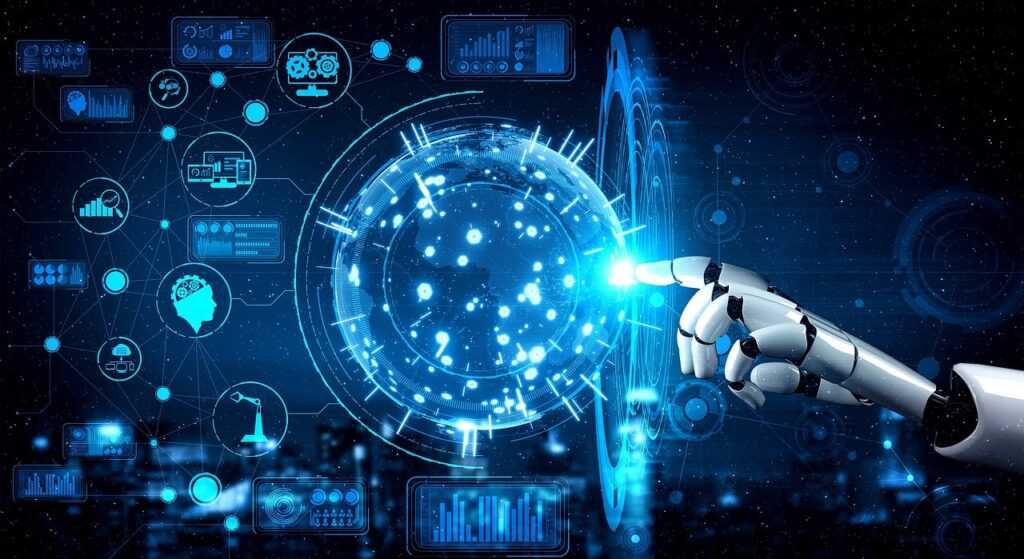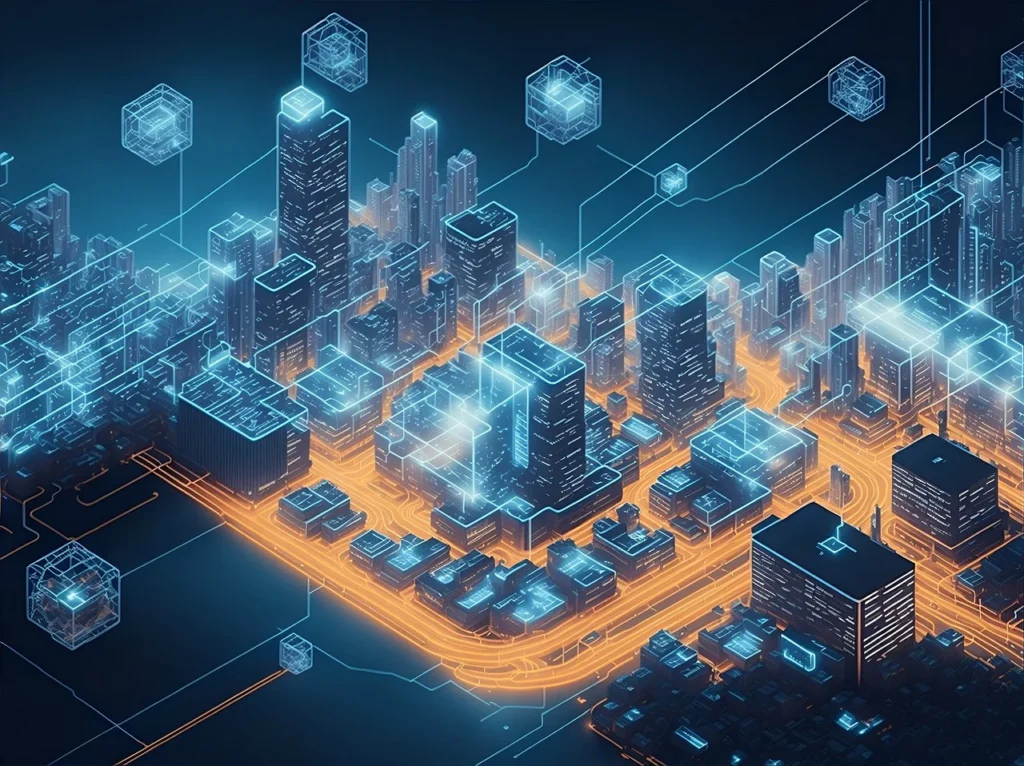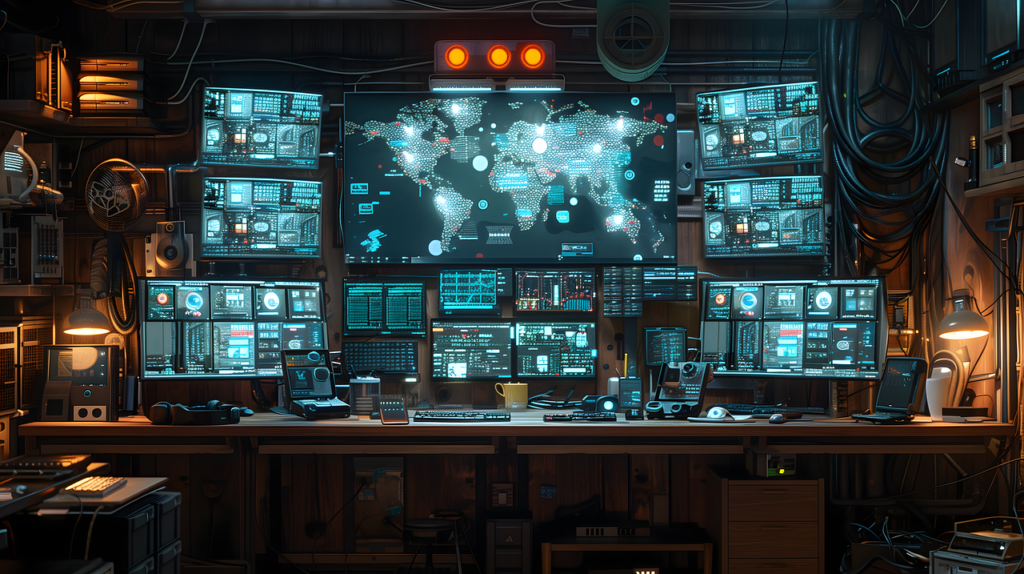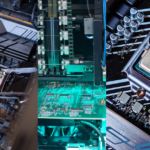Artificial Intelligence (AI) and robotics are revolutionizing the way we approach tasks and solve problems. Together, these technologies are reshaping industries, driving innovation, and improving efficiency across sectors like healthcare, manufacturing, and even space exploration. In this article, we’ll dive into AI robotics technology, explore its potential, and uncover how it’s making waves in modern society.
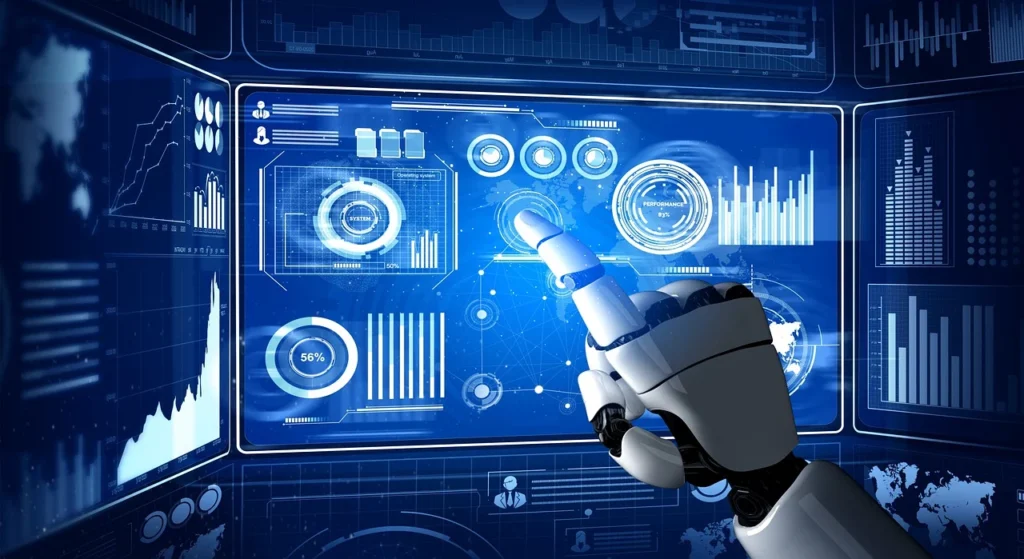
The Evolution of AI Robot Technology
The history of AI robot technology dates back to the mid-20th century when researchers began to explore the possibility of creating machines that could mimic human intelligence. Over the years, technological advancements in machine learning, neural networks, and data processing have allowed robots to become more autonomous and intelligent.
From early industrial robots to the sophisticated AI-driven machines of today, AI robot technology has evolved rapidly. Robots are now capable of performing complex tasks, from assembling products on factory floors to assisting in medical surgeries.
Definition of AI Robot Technology
The definition of AI robot technology can be understood as the fusion of two groundbreaking fields: artificial intelligence and robotics. AI provides the “brains” for robots, enabling them to think and make decisions based on vast amounts of data. Robotics provides the physical “body,” allowing these machines to interact with the physical world.
AI robot technology has the potential to automate processes, reduce human error, and increase productivity. It’s revolutionizing industries like healthcare, logistics, and automotive, where tasks that once required human intervention can now be carried out more efficiently by robots.
The Role of Robotics Technology in Modern Society
Robotics technology involves the design, construction, operation, and use of robots. It encompasses a broad range of machines, from industrial robots used in manufacturing to service robots that assist in daily tasks. Robotics technology has made significant strides in automating processes and improving operational efficiency across industries.
What is Robotics Technology?
At its core, robotics technology is the science and engineering behind the creation of robots. This includes designing the mechanical systems, programming the robots to perform tasks, and incorporating sensors and AI to enable them to adapt to their environment. Robotics technology can be applied in a variety of settings, including manufacturing, healthcare, and space exploration.
In the future, robots powered by AI will play an even more prominent role, assisting in everything from delivering packages to performing complex surgeries. Robotics technology is poised to redefine how we live and work.
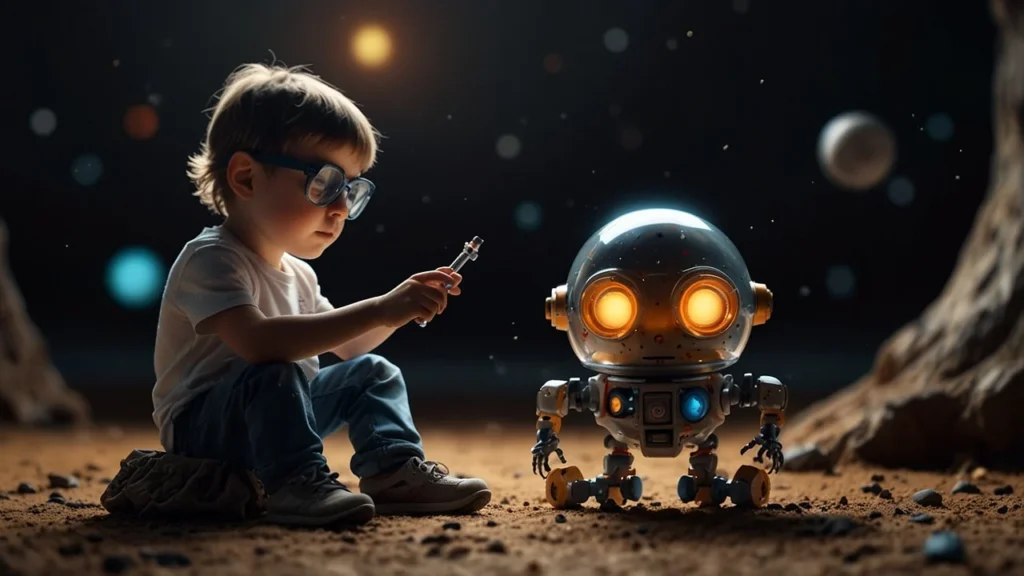
Robotic Automation Technology
Robotic automation technology refers to the use of robots to perform repetitive tasks that were once carried out by humans. This technology is widely used in manufacturing industries, where robots are programmed to assemble products, weld parts, or perform quality checks.
The benefits of robotic automation technology include increased efficiency, reduced labor costs, and improved safety. As AI technology continues to evolve, robots will become more capable of handling complex and nuanced tasks, further driving automation in various sectors.
Key Benefits of Robotic Automation Technology
Efficiency: Robots can work 24/7 without needing breaks, allowing for continuous production and reduced downtime.
Cost Reduction: Automation lowers labor costs and reduces human error, leading to savings for businesses.
Precision: AI robots are capable of performing highly precise tasks that humans might struggle with.
Scalability: Once set up, robotic systems can be scaled easily to handle increased production demands.
AI Technology for Underwater Robots
AI technology is also making significant strides in underwater robotics. These robots are designed to explore and perform tasks in underwater environments, such as deep-sea exploration, underwater surveying, and maintenance of offshore infrastructure.
How AI Technology Enhances Underwater Robotics
AI technology enhances underwater robots by providing them with the ability to process and analyze data from their environment. These robots use sensors to detect obstacles, navigate underwater currents, and even recognize marine life.
AI-powered underwater robots are invaluable tools for scientific research, oil exploration, and even disaster response. For example, in the event of an underwater oil spill, AI-enabled robots can assess the damage and assist in the cleanup efforts more effectively than human divers could.
Future of AI Technology for Underwater Robots
As AI technology continues to evolve, underwater robots will become increasingly autonomous. They will be capable of performing more complex tasks without human intervention, making them ideal for long-term missions in challenging environments. These advancements will likely open up new frontiers in marine research and resource extraction.
AI-Enabled Robots in Future Technology
AI-enabled robots are set to revolutionize future technologies across various fields. From personal assistants to autonomous vehicles, AI-powered robots will play a central role in shaping the future of technology.
AI Robots in Healthcare
In healthcare, AI-enabled robots are already assisting in surgeries, diagnostics, and rehabilitation. Robots equipped with AI algorithms can analyze medical data, make decisions, and even perform intricate surgeries with higher precision than human doctors.
In the future, AI robots could help with everything from eldercare to drug delivery, improving patient outcomes and reducing healthcare costs.
AI Robots in Autonomous Vehicles
AI-powered robots are essential for the development of autonomous vehicles. These vehicles rely on AI to navigate roads, interpret traffic signals, and make real-time decisions based on their environment.
In the coming years, we can expect AI robots to be integral to self-driving cars, trucks, and drones, transforming transportation systems and reducing traffic accidents.
AI Robots in Space Exploration
AI robots are also playing a pivotal role in space exploration. Robots equipped with AI technology can perform tasks such as repairing satellites, conducting research, and even exploring distant planets.
In the future, AI robots may assist astronauts in long-duration space missions, performing critical tasks like maintaining life support systems and exploring alien environments.
The Challenges of AI Robot Technology
Despite the promising future of AI robot technology, there are still several challenges that need to be addressed:
Ethical Concerns: As robots become more autonomous, questions arise about their decision-making capabilities and potential impacts on jobs.
Security Risks: AI robots could be vulnerable to hacking or misuse, raising concerns about safety and privacy.
Cost: While the cost of robotic systems has been decreasing, advanced AI robots remain expensive to develop and deploy.
The Future of AI Robot Technology
Looking ahead, AI robot technology is poised to evolve at an exponential rate. We are already seeing advancements in robotics, automation, and AI that were once thought to be the stuff of science fiction. The future holds exciting possibilities, from smart homes to AI-powered personal assistants that understand our needs better than ever before.
AI Robots in Daily Life
In the future, AI robots could become common household assistants, helping with everything from cleaning to cooking. These robots would be able to learn from their environments and adapt to the preferences of their owners, making daily life more convenient.
Integration with IoT
AI robots will also likely be integrated with the Internet of Things (IoT), allowing them to communicate with other smart devices in a home or office. This will create a seamless experience where robots can perform tasks based on real-time data from other devices.
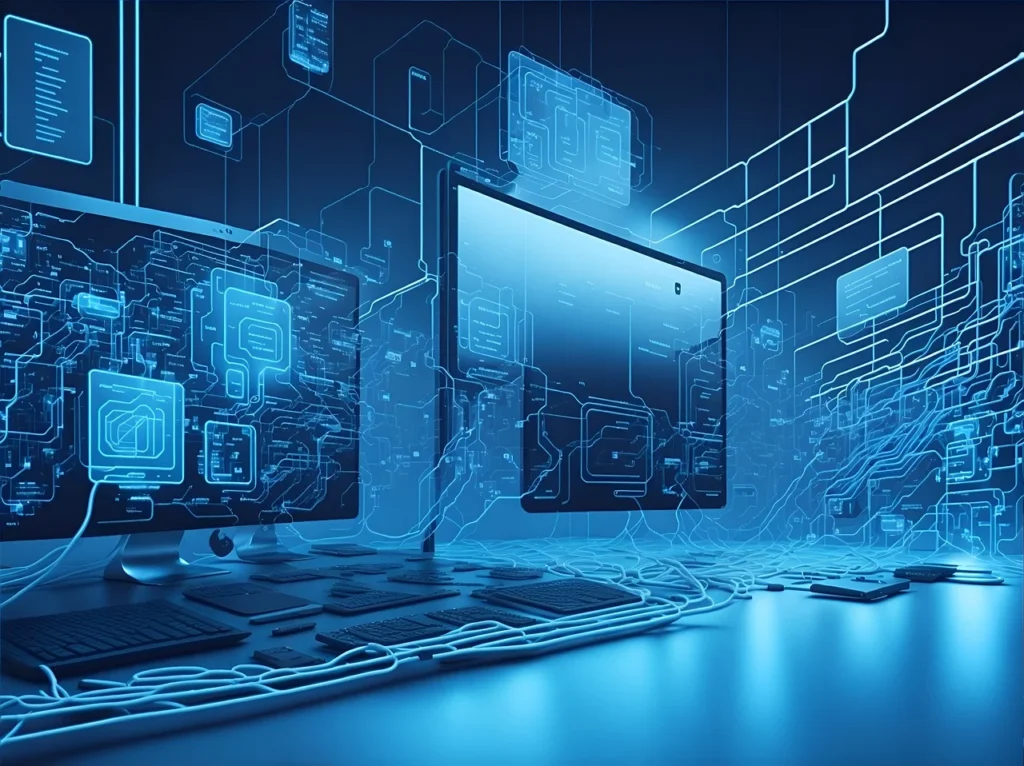
What is AI Computer Science?
AI computer science is the branch of computer science that deals with creating algorithms and systems that enable machines to perform tasks that traditionally required human intelligence. These tasks include reasoning, problem-solving, learning, and adaptation. The application of AI in computer science engineering has led to the rise of intelligent software and systems that mimic human behavior.
The Foundations of AI Computer Science
AI computer science integrates various domains such as machine learning, neural networks, natural language processing (NLP), and robotics. With the increasing future of computer science with AI, advancements in data processing and computational power allow computers to make decisions and learn autonomously.
Key Concepts in AI Computer Science
Understanding what is AI computer science requires a deep dive into essential concepts like supervised learning, unsupervised learning, reinforcement learning, and deep learning. These concepts form the backbone of AI’s development and are revolutionizing industries from healthcare to finance.
The Convergence of AI Computer Science and Robotics
The intersection of AI computer science and robotics has given birth to the field of intelligent robotics. Robotics involves designing machines capable of performing tasks autonomously or semi-autonomously, and when combined with AI, these robots become more efficient, adaptable, and intelligent.
What Role Does AI Play in Robotics?
AI enables robots to process sensory input, make decisions, and learn from their environment. Robots equipped with AI algorithms can improve their performance over time, thus becoming highly effective in tasks such as assembly line work, surgery, and autonomous driving. The impact factor of AI on robotics cannot be overstated—it’s transforming how we perceive automation.
The Rise of Autonomous Robots in Industry
With computer science engineering AI, robots are now being employed across various industries, from manufacturing to healthcare. AI-powered robots are capable of working without human intervention, which leads to increased efficiency, cost savings, and safety.
The Future of AI in Computer Science and Robotics
The future of computer science with AI is nothing short of exciting. The potential for innovation is boundless, with AI-driven advancements leading to new capabilities in robotics. Let’s explore how AI is expected to shape the future of these fields.
AI-Enhanced Robotics: What’s Next?
AI’s influence in robotics is poised to grow, particularly in the development of robots with advanced reasoning abilities, human-like decision-making skills, and the ability to understand natural language. In the coming years, we can expect to see robots that can carry out complex tasks in uncertain environments with little to no human supervision.
Ethical Considerations in AI and Robotics
As AI continues to revolutionize robotics, ethical questions arise regarding job displacement, safety, and security. The fusion of AI computer science and robotics challenges traditional notions of privacy, autonomy, and accountability. It is crucial to ensure that these technologies are developed and implemented ethically to avoid potential negative impacts on society.
AI in Robotics: Transforming the Healthcare Sector
One of the most significant benefits of AI computer science and robotics technology is its application in healthcare. AI-enabled robots can assist in surgeries, perform diagnostic tasks, and provide support in elderly care. The future of healthcare is increasingly reliant on AI-powered robots that can work efficiently alongside human medical professionals.
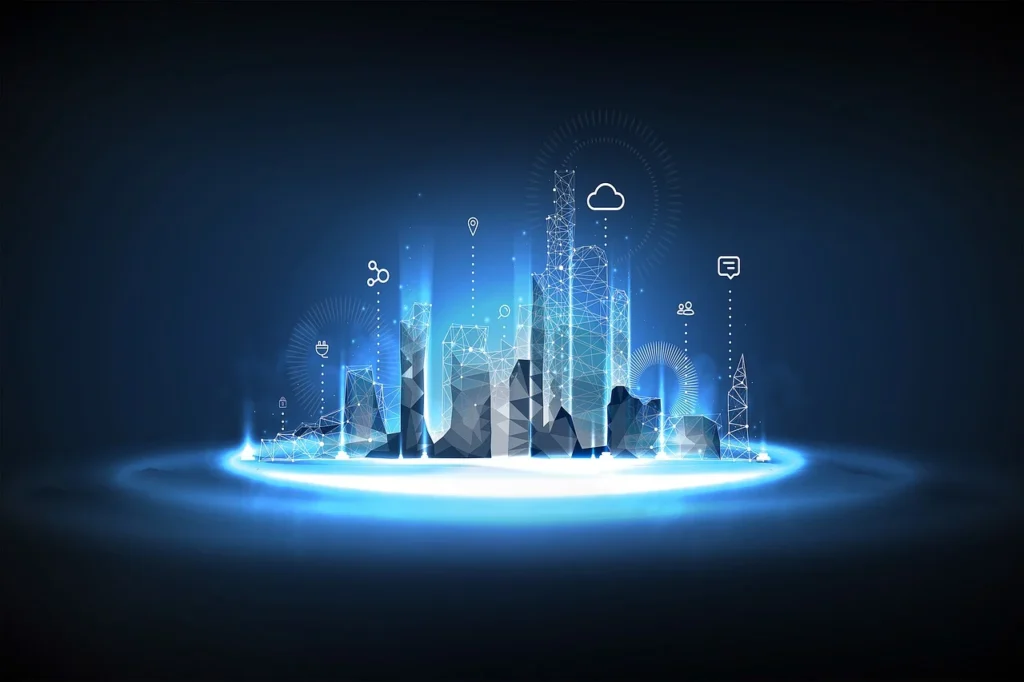
AI Computer Science and Robotics: Transforming Industries
The integration of AI computer science and robotics is transforming multiple industries, driving automation, and enhancing productivity. Let’s take a closer look at how AI is being used to innovate sectors like manufacturing, agriculture, logistics, and more.
AI in Manufacturing and Industrial Robotics
In the manufacturing sector, computer science engineering AI plays a vital role in automating repetitive tasks, improving quality control, and minimizing errors. Robots powered by AI can carry out tasks with high precision and at a faster rate than human workers. This has led to the rise of smart factories that are more efficient and less reliant on manual labor.
AI and Robotics in Agriculture: The Future of Farming
Agriculture is another field where AI and robotics are making a significant impact. AI-powered robots are being developed to plant, harvest, and monitor crops with minimal human intervention. These advancements not only boost crop yields but also contribute to sustainability by reducing the need for pesticides and fertilizers.
AI and Robotics in Logistics and Supply Chain
In logistics, AI and robotics are improving the management of supply chains. Automated systems powered by AI are helping companies streamline inventory management, reduce human error, and speed up the delivery process. These advancements are leading to the creation of fully automated warehouses and transportation systems.
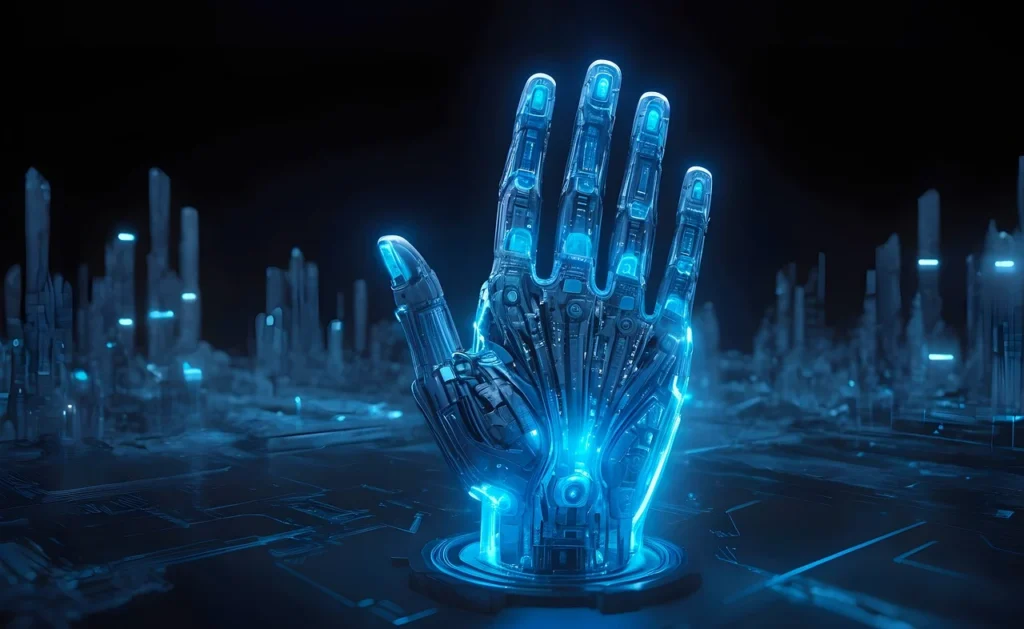
AI Computer Science and Robotics Technology Impact Factor
The impact factor of AI computer science on robotics technology is immense. As AI becomes more advanced, it enables robotics to perform tasks with greater precision, speed, and adaptability. Moreover, AI-powered robots are capable of learning from experience, which leads to constant improvement in their performance.
AI-Driven Innovation in Autonomous Vehicles
Autonomous vehicles, including self-driving cars and drones, are one of the most remarkable examples of AI computer science and robotics technology. With AI algorithms processing data from sensors and cameras, these vehicles can navigate roads, avoid obstacles, and make real-time decisions. The impact of AI on autonomous vehicles is expected to grow, revolutionizing the transportation industry.
The Role of AI in Social Robots and Human Interaction
AI is also making waves in the field of social robots. These robots are designed to interact with humans, providing companionship, assistance, and entertainment. AI enables robots to understand and respond to human emotions, making them highly valuable in fields like elderly care, education, and customer service.
Challenges in AI Computer Science and Robotics Technology
While AI and robotics bring numerous benefits, the journey is not without challenges. The integration of these technologies requires significant research, investment, and careful planning to avoid potential risks.
Technical Limitations and Resource Constraints
Despite the advancements, computer science engineering AI is still in its infancy in many respects. The algorithms that power AI and robotics are computationally demanding, requiring significant processing power and large datasets. Moreover, creating robots that can function effectively in complex, real-world environments remains a technical challenge.
Societal and Economic Impacts
The widespread adoption of AI and robotics could lead to significant changes in the workforce. While these technologies create new job opportunities in the tech sector, they also raise concerns about job displacement in sectors like manufacturing and retail. Governments and businesses must work together to ensure a smooth transition to an AI-driven economy.
In conclusion, AI computer science and robotics technology are transforming industries and reshaping our daily lives. The fusion of AI and robotics is driving innovation, from healthcare and manufacturing to space exploration and autonomous vehicles. As these technologies continue to evolve, we can expect even greater advancements in automation, precision, and efficiency. While challenges such as ethical concerns and technical limitations remain, the future holds exciting possibilities. AI robots are set to revolutionize how we work and live, opening doors to new frontiers in technology and human-machine collaboration.
Frequently Asked Questions (FAQs)
1. What is AI Robot Technology and how does it work?
AI robot technology involves the integration of artificial intelligence (AI) into robotic systems. This allows robots to perform tasks that require human-like cognitive functions such as learning, decision-making, and problem-solving. Through AI algorithms, robots can adapt to their environment, process data, and execute tasks with high precision. These intelligent robots are capable of performing everything from industrial work to assisting in healthcare and research.
2. How is AI transforming industries like healthcare and manufacturing?
AI technology is revolutionizing industries by enhancing efficiency, safety, and productivity. In healthcare, AI-powered robots are used for surgeries, diagnostics, and rehabilitation, offering better precision than human counterparts. In manufacturing, robots powered by AI can automate repetitive tasks, such as assembly line work, improving speed and reducing human error. This transformation results in cost savings, better quality control, and overall improvements in the industry.
3. What are the challenges of AI and robotics technology?
Despite the enormous potential of AI and robotics, there are challenges that need to be addressed. Ethical concerns arise regarding job displacement, as robots replace human workers in some sectors. Security is also a critical issue, as AI robots could become vulnerable to hacking. The high cost of developing AI-powered robots and the technical limitations of existing technology also present challenges. Overcoming these hurdles requires continued innovation and ethical considerations to ensure responsible deployment.
4. What is the future of AI in robotics and its role in society?
The future of AI in robotics holds immense promise. As AI algorithms continue to evolve, robots will become more intelligent, autonomous, and capable of handling more complex tasks. This will lead to advancements in healthcare, where robots will assist with surgeries, eldercare, and even drug delivery. In transportation, autonomous vehicles will become more prevalent, reducing traffic accidents and improving efficiency. AI-powered robots will also become more integrated into our daily lives, helping with household chores and personal assistance. As robots become more autonomous and human-like, their integration into society will require careful ethical considerations and regulatory frameworks to ensure their positive impact.

